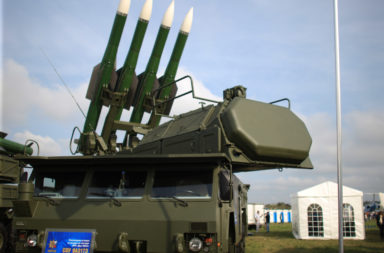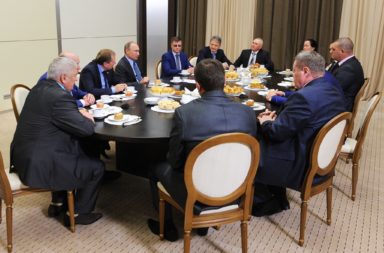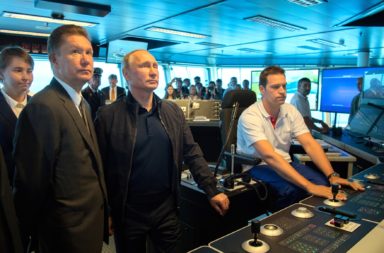When US Secretary of State Kerry took the stage in Munich to lay out his analysis of the current global security environment, his speech started with a lighthearted exchange. After MSC organizer Wolfgang Ischinger had reminded Kerry, that this was likely his last Security Conference, the Secretary of State jokingly hinted at entering the Democratic primary race: “maybe not, depending on what I decide to do next.” Kerry had lost the presidential elections 2004 as the democratic nominee against then incumbent George W. Bush.
Kerry then went on to compare the current global security situation to post-war Europe. “We are facing the gravest humanitarian crisis since WW2“, he said, making clear that not since then has the continent been faced by a comparable onslaught of simultaneous crises. The US was not immune to these developments, and shared a responsibility in stemming the tide now threatening the fabric of a united Europe.
Kerry called on European unity in the face of these challenges, highlighting the potentially disruptive effects of a British exit from the EU and continued disunity on the issue of refugees.
“Those who hope that the transatlantic partnership could unravel, could not be more wrong (…) They forget that the ties that bind us are not are not some kind of fragile strings of momentary convenience. They are rugged, time-tested cords of democratic values: liberty, decency, justice, rule of law.”
Nowhere he said, are those values more important than in the commitment to a democratic Ukraine. Standing up to Russia and for Ukraine’s fundamental rights could mean a continuation of sanctions against Russia, should the country fail to adhere to the Minsk Agreement.
Regarding the Ukrainian government, where much work was still to be done, he expressed his hope that 2016 could become the year when “Ukraine proves that reform can triumph over corruption”.
He announced military spending in Europe would increase 4-fold to $3,4 billion. This means:
– a division’s worth of equipment in Europe
– an additional brigade in central and eastern Europe
Violent extremism could only be addressed by also fighting the economic root causes for much of the violence of young men who don’t see a future for themselves
On TTIP he challenged the critics saying that the trade agreement could weaken Europan regulations, calling the claims false.
Kerry pointed to the high environmental and labour standards included in the TTP, which was signed earlier this year between the US and other Pacific nations in Asia and South America
Regarding the fight against Daesh, Kerry presented a 5 point plan:
1. Military 10.000 airstrikes conducted to go after ISIS fighters, supported by coalition special forces, have led to the liberation of Tikrit, Sindjar, Ramadi, Hasaka, and Kobane.
2. Economic. After hitting ISIS hard, “you have to also ensure that they can’t get back up”. This means you have to hit their economic infrastructure.
3. Tighter border security means less ISIS fighters can enter Syria.
4. On the ideological front, it is important to tackle head on the apocalyptic message of Daesh, “so that those who can really talk with authority about what Islam means have the means to do so”
5. Humanitarian issues. To ensure that those who have suffered most at the hands of Daesh once again have a future.
All of this comes at price. Taking in refugees has real financial and political costs. But in the end “our common values“, in Mr Kerry’s view, will prevail. He also pledged another $925 Million for Syrian refugees.
Writing checks and fighting over the future of Schengen will change nothing, he said, “we have to end this war.”




